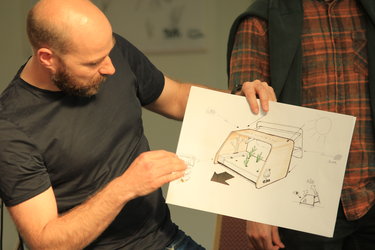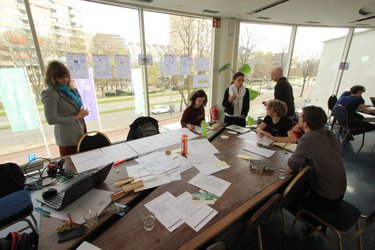Accept all cookies Accept only essential cookies See our Cookie Notice

About ESA
The European Space Agency (ESA) is Europe’s gateway to space. Its mission is to shape the development of Europe’s space capability and ensure that investment in space continues to deliver benefits to the citizens of Europe and the world.
Highlights
ESA - United space in Europe
This is ESA ESA facts Member States & Cooperating States Funding Director General Top management For Member State Delegations European vision European Space Policy ESA & EU Space Councils Responsibility & Sustainability Annual Report Calendar of meetings Corporate newsEstablishments & sites
ESA Headquarters ESA ESTEC ESA ESOC ESA ESRIN ESA EAC ESA ESAC Europe's Spaceport ESA ESEC ESA ECSAT Brussels Office Washington OfficeWorking with ESA
Business with ESA ESA Commercialisation Gateway Law at ESA Careers Cyber resilience at ESA IT at ESA Newsroom Partnerships Merchandising Licence Education Open Space Innovation Platform Integrity and Reporting Administrative Tribunal Health and SafetyMore about ESA
History ESA Historical Archives Exhibitions Publications Art & Culture ESA Merchandise Kids Diversity ESA Brand Centre ESA ChampionsLatest
Space in Member States
Find out more about space activities in our 23 Member States, and understand how ESA works together with their national agencies, institutions and organisations.
Science & Exploration
Exploring our Solar System and unlocking the secrets of the Universe
Go to topicAstronauts
Missions
Juice Euclid Webb Solar Orbiter BepiColombo Gaia ExoMars Cheops Exoplanet missions More missionsActivities
International Space Station Orion service module Gateway Concordia Caves & Pangaea BenefitsLatest
Space Safety
Protecting life and infrastructure on Earth and in orbit
Go to topicAsteroids
Asteroids and Planetary Defence Asteroid danger explained Flyeye telescope: asteroid detection Hera mission: asteroid deflection Near-Earth Object Coordination CentreSpace junk
About space debris Space debris by the numbers Space Environment Report In space refuelling, refurbishing and removingSafety from space
Clean Space ecodesign Zero Debris Technologies Space for Earth Supporting Sustainable DevelopmentLatest
Applications
Using space to benefit citizens and meet future challenges on Earth
Go to topicObserving the Earth
Observing the Earth Future EO Copernicus Meteorology Space for our climate Satellite missionsCommercialisation
ESA Commercialisation Gateway Open Space Innovation Platform Business Incubation ESA Space SolutionsLatest
Enabling & Support
Making space accessible and developing the technologies for the future
Go to topicBuilding missions
Space Engineering and Technology Test centre Laboratories Concurrent Design Facility Preparing for the future Shaping the Future Discovery and Preparation Advanced Concepts TeamSpace transportation
Space Transportation Ariane Vega Space Rider Future space transportation Boost! Europe's Spaceport Launches from Europe's Spaceport from 2012
AstroPlant green light
Thank you for liking
You have already liked this page, you can only like it once!
The latest prototype of the AstroPlant citizen science project has gotten the green light for production. AstroPlant is a desktop greenhouse that allows people to collect data on potential crops to grow in space.
The LED panels attached to heat sinks imaged above are one of the components that future space farmers will need to build their own kits.
Just as agriculture revolutionised human settlements on Earth, it will also be a game changer in space. Crews on long missions to and on the Moon will need to be as self-sufficient and sustainable as possible so growing food is crucial.
But first we need more information on what to grow.
Enter the AstroPlant initiative. It was born at the annual Border Sessions technology conference in 2016 asking home-gardeners, schools, urban farmers and other enthusiasts to nourish seeds selected by ESA’s Micro-Ecological Life Support System Alternative (Melissa) team.
Melissa has been working for over 27 years to create ecosystems for astronauts. They are fine tuning how microrganisms, chemicals, catalysts, algae and plants interact to process waste and deliver unending supplies of oxygen, water and food.
Since 2016, participants across Europe brainstormed prototypes and aspects such as hardware design, user interface and business development of the project. A crowd-funding campaign was also launched to finance some kits for a group of early adopters including school teachers, plant researchers, and educational maker-spaces.
Their feedback culminated in the latest round of testing for version six hardware that is now going into production.
The initiative hopes eventually to have AstroPlant kits set up in secondary schools as part of its educational goals.
Classroom resources developed by the ESA Education Office on AstroCrops, AstroFood, and AstroFarmers are already available, with more materials focusing on modern production techniques like hydroponics currently in development.
If you are interested in getting involved with the AstroPlant project or if you would like more information send an email to astroplant@esa.int.
-
CREDIT
Axtron BV -
LICENCE
ESA Standard Licence

AstroPlant greenhouse design

AstroPlant hackathon

AstroPlant app mockup

Cosmic farming















 Germany
Germany
 Austria
Austria
 Belgium
Belgium
 Denmark
Denmark
 Spain
Spain
 Estonia
Estonia
 Finland
Finland
 France
France
 Greece
Greece
 Hungary
Hungary
 Ireland
Ireland
 Italy
Italy
 Luxembourg
Luxembourg
 Norway
Norway
 The Netherlands
The Netherlands
 Poland
Poland
 Portugal
Portugal
 Czechia
Czechia
 Romania
Romania
 United Kingdom
United Kingdom
 Slovenia
Slovenia
 Sweden
Sweden
 Switzerland
Switzerland
























